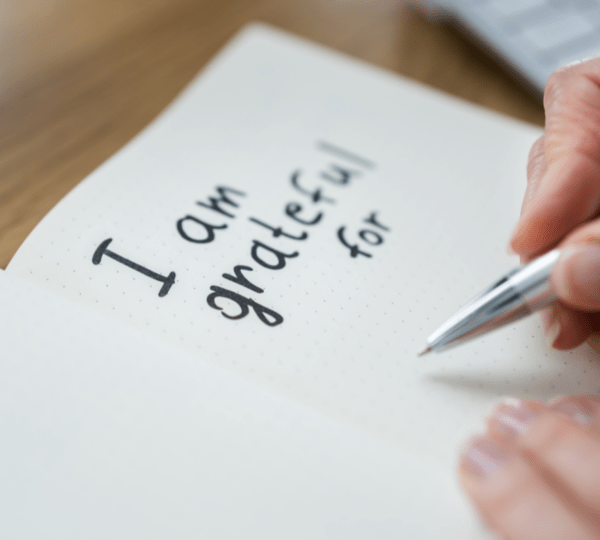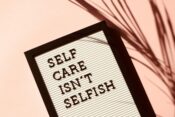
Setting Goals and Reflecting: Writing as a Modern Self-Care Practices
Recently, I bought a simple notebook and started writing. I began with a few sentences about my day—what stressed me out and what made me smile. Slowly, I began setting small goals for myself, like reading a chapter of a book each week or planning a weekend hike. As I filled the pages, I realized that journaling wasn’t just about recording events; it became a safe space for reflection and growth.
From my experience, Writing also known as journaling, helps us process our thoughts, clarify feelings, and gain insight into our lives. Whether you’re navigating challenges, celebrating successes, or simply trying to understand yourself better, journaling is a valuable practice. This blog post will explore recent trends in journaling, effective journaling prompts for self-reflection that can enhance personal growth, expert opinions, and how to integrate journaling into your routine.
Why Writing for Self-Reflection?
Writing isn’t just about documenting daily events; it’s a method of self-discovery. According to research by Dr. James Pennebaker, a psychologist and pioneer in expressive writing, journaling can lead to improved emotional health and greater clarity in thought. Engaging in reflective journaling helps individuals process experiences, allowing them to make sense of their emotions and thoughts in a constructive way.
In a world filled with distractions—social media, work demands, and constant notifications—self-reflection becomes essential for mental well-being. Studies have found that those who regularly engage in self-reflection report higher levels of happiness, life satisfaction, and emotional resilience. It’s also a great way to slow down and take stock of your thoughts when life feels overwhelming.
Additionally, journaling allows you to track patterns over time. For instance, you might notice recurring themes in your entries—whether positive or negative—and address them accordingly. This awareness fosters personal growth and can even lead to making significant life changes.
Recent Trends in Writing
Writing is more popular than ever, especially as a self-care practice among women. According to a report by the Global Wellness Institute, the self-care market is booming, with journaling being a significant part of this trend. Platforms like Instagram and TikTok have fueled a resurgence of creative journaling styles, each catering to different personalities and goals. Here are some trending forms of journaling:
- Bullet Journaling: Popularized by Ryder Carroll, this method is a mix of organizing tasks, goals, and reflections. Bullet journals often include daily to-do lists, habit trackers, and short reflective entries, making them ideal for those who crave structure but also want a space for creativity.
- Art Journaling: For those who feel most expressive through art, this style blends writing with drawings, collage, or painting. Art journaling has been shown to reduce stress and anxiety, giving you an outlet to channel emotions creatively.
- Gratitude Journaling: A simple yet powerful practice, gratitude journaling involves writing down things you’re grateful for each day. It shifts your focus from what’s lacking to what’s abundant in your life, fostering a more positive mindset. In fact, studies have shown that individuals who keep gratitude journals report better emotional well-being and greater optimism.
- Digital Journaling: With the rise of apps like Day One and Journey, journaling has become accessible on digital platforms. These apps offer prompts, photo integration, and even mood tracking, providing a multimedia approach to self-reflection. For those constantly on the go, digital journaling can be an easy way to maintain the habit.
These trends show that journaling is no longer a one-size-fits-all practice. You can explore these options to find a style that resonates with you.
Writing Prompts for Self-Reflection
Getting started with writing can sometimes feel daunting, but prompts can guide your thoughts. Below are some thoughtful writing prompts to help you dive into self-reflection and personal growth.
- What am I grateful for today?
Start each entry by acknowledging the good in your life. Practicing gratitude has been shown to improve mental well-being and foster positive emotions (Emmons & McCullough, 2003). Write down three specific things you’re thankful for, no matter how small. - What challenges am I currently facing?
Identify any difficulties you’re dealing with. What emotions arise when you think about these challenges? Writing about them can help clarify your thoughts and develop strategies for overcoming them. - What do I love most about myself?
Reflect on your strengths and positive qualities. This exercise boosts self-esteem and encourages self-acceptance. Write down three qualities you admire in yourself and why they matter. - How have I changed in the last year?
Think about how you’ve grown or evolved. Reflecting on personal changes can help you appreciate your journey and see how you’ve adapted. - What are my goals for the next six months?
Setting specific, achievable goals can help you stay focused. Break them down into actionable steps and reflect on how you can work toward them. - What is one thing I wish I could tell my younger self?
Writing a letter to your younger self fosters compassion and reflection. It’s a way to acknowledge your growth and the lessons you’ve learned. - What makes me feel most alive?
Identify the activities, people, or experiences that bring joy and fulfillment. This can help you prioritize what truly matters in your life. - What are my biggest fears?
Explore your fears without judgment. Understanding them can empower you to confront and manage them. - What habits do I want to cultivate?
Reflect on the habits you want to develop for a healthier lifestyle. Create actionable steps to achieve your goals, whether they relate to health, relationships, or personal development. - How do I define success?
Think about what success means to you personally. This exercise can help you align your goals with your core values.
These prompts provide a starting point, but feel free to modify them to suit your needs. The key is to be honest with yourself.
Integrating Writing into Your Daily Routine
The true benefits of journaling are realized when it becomes a regular habit. But how do you integrate it into your busy life? Here are some practical tips:
- Set a Specific Time: Choose a time that works best for you—whether it’s in the morning to set your intentions or in the evening to reflect on your day. Consistency is essential for making journaling a meaningful practice.
- Create a Comfortable Environment: Find a quiet space where you can write without distractions. Make your space inviting with cozy blankets, candles, or calming music to make journaling something you look forward to.
- Keep Your Journal Accessible: Whether it’s a physical notebook or a digital app, keep your journal nearby so you can jot down thoughts when inspiration strikes.
- Experiment with Styles: There’s no right or wrong way to journal. Play around with bullet journaling, art journaling, or free writing. See which style resonates with you most.
- Don’t Worry About Perfection: Your journal is for you, not for anyone else. It doesn’t need to be perfectly written or polished. Let go of the need for perfection and just write.
- Join a Community: Journaling doesn’t have to be a solitary activity. Many find inspiration by joining journaling communities, whether online or in person. These communities offer support and ideas to deepen your practice.
Expert Opinions on the Benefits of Writing
Mental health professionals strongly advocate journaling for self-reflection and emotional clarity. Dr. Julia E. K. Baird, a psychologist specializing in cognitive-behavioral therapy, says, “Writing in a journal externalizes our thoughts, helping us gain clarity and insight. It’s a powerful tool for self-discovery.”
Author and self-care advocate Brené Brown, in her book Daring Greatly, emphasizes that vulnerability is essential for personal growth. She writes, “Vulnerability is the birthplace of innovation, creativity, and change.” Journaling encourages vulnerability, allowing us to reflect honestly on our experiences, which leads to deeper self-awareness.
Conclusion: Embrace Your Journey
Writing for self-reflection unlocks profound insights and fosters personal growth. By incorporating the writing prompts and strategies mentioned in this post, you’ll gain a deeper understanding of yourself and your experiences. Remember, the journey of self-discovery is ongoing, and journaling is a tool to help navigate it.
Whether you’re just beginning your writing practice or looking to deepen it, know that writing can provide clarity, cultivate gratitude, and empower you to embrace life’s challenges. So, grab your journal, find a quiet space, and let your thoughts flow.
References
- Pennebaker, J.W. (1997). Opening Up: The Healing Power of Expressing Emotions. New York: Guilford Press.
- Emmons, R.A., & McCullough, M.E. (2003). “Counting blessings versus burdens: An experimental investigation of gratitude and subjective well-being in daily life.” Journal of Personality and Social Psychology, 84(2), 377-389.
- Creech, A., Hallam, S., Varvarigou, M., & Clift, S. (2013). “A study of group singing, well-being and health: A report for the British Academy of Music.” Music Education Research, 15(1), 88-104.
- Brown, Brené (2012). Daring Greatly: How the Courage to Be Vulnerable Transforms the Way We Live, Love, Parent, and Lead. New York: Gotham Books. 1















